|
The MP for Tooting has been working in her local hospital where doctors and nurses are already dealing with cases of covid-19. She warns that many of those being treated are in their 30s and 40s.
Dr Rosena Allin-Khan is the MP for Tooting but she is also a practising doctor in A&E. She regularly goes in to do shifts in her local hospital St George's and has been in contact with her colleagues. This Sunday she took a record down for Mirror readers about the situation faced by nurses, doctors and others on the frontline in the fight against coronavirus. She said her latest shift had been a "deeply, deeply eye-opening" experience with previously fit and healthy people in their 30s and 40s "attached to machines, fighting for their lives". And she has been deeply critical of the approach taken by the government in tackling the spread of the deadly virus. "The Prime Minister has been blase about this from the start, waiting for others to make decisions so he doesn't have to. It is costing lives," she said. Mirror Diary - Sunday 22 March6.30am – Leaving the HouseOn the way to work in A&E, to help out the real heroes of the frontline – the NHS staff who work day-in, day-out to keep us all safe. I am a bit apprehensive after seeing the stories that are being reported about Covid-19 and having spoken to colleagues across the country, but we need to come together at times like these for our communities. 7am – Reporting for DutyJust finished handover, which is when the day shift gets given notes on the patients who have come in overnight. There’s a very real sense that the number of cases are growing extremely quickly, something that will present a real challenge in the coming days and weeks. Some of the sickest patients that have been admitted have been young – they’re in their 30s and 40s, previously fit and well, but now fighting for their lives in Intensive Care (ICU). There was a lot of talk in January that this was a virus just like the flu that only affects older people – that simply isn’t the case. There’s a real sense of apprehension ahead of the shift – we’re all expecting a rocky road ahead in the coming days. 8am- Protective EquipmentThe first part of the shift was spent looking for Personal Protective Equipment (PPE) – these are masks and aprons that keep those working on the frontlines safe. While we’d all rather be treating patients, we have to ensure that we are adequately protected so we don’t spread the infection between patients. Frontline staff across the country are scared. We’re scared that we’re going to lose patients – we have spent years training to save every life that we can. We are scared of passing this deadly virus onto our loved ones because we don’t always have the PPE that we so desperately need. We’re scared that that if we aren’t properly protected, that we run the risk of spreading the virus between patients. It’s vital that people practice social distancing measures properly – crowded areas will only add to the number of cases, and the number of people being admitted into hospitals across the country. In the coming days and weeks, difficult decisions will be made by my colleagues in ICU about who gets a ventilator – it’s that serious. Midday – Resus overwhelmedThe whole of resus is full of patients with respiratory problems – this is the part of A&E where the sickest patients go. Patients are arriving breathless, with crackles so fine in their lungs, you can hardly hear them. Their X-rays show white lungs where normally, they would look clear and black, full of air. Major trauma, such as heart attacks and victims of car crashes, are now being moved into paediatric A&E. The situation around Covid-19 is clearly getting worse by the day. The talk amongst the team is that we feel that we will be overwhelmed in the coming days. I’m going for a refresher course on ventilators for staff – they’re also training new staff on how to use ventilators. The talk is, of course, feeling quite bleak as the day goes on – but this is what we’ve all been trained for. 4pm – Leaving A&EJust leaving A&E now – it’s been a difficult shift and a difficult Mother’s Day. At times like these, we must think about our loved ones - if we want to protect those dearest to us, we must stay indoors. I’ve just called my husband and asked him to let our daughters know that they won’t be able to cuddle me and give me their handmade presents when I get home. Instead, I’ll be getting straight in the shower and throwing my clothes in the washing machine – it is our duty to protect the ones we love. If we all work together, keeping our communities safe, we can, and we will, save lives. Former Labour MEP SEB DANCE explains why he is supporting Rosena Allin-Khan in the Labour deputy leadership race.
Britain has left the EU. As a former Labour Member of the European Parliament, as a Remainer, and as a proud pro-European, that’s still not an easy thing for me to say – but it’s the reality. There is no longer a campaign to remain. That doesn’t mean that Boris Johnson’s famous lie of “get Brexit done” has suddenly come true. The ongoing negotiations with the EU will continue to define our country’s future for years to come. Perhaps one day the fight to join the EU will come. How soon that time comes depends on what we do next. Pro-Europeans must now fight for a close relationship between the UK and our friends in the EU and ongoing rights for UK citizens. The Labour Party must play a crucial role in that fight. That’s why I’m supporting Doctor Rosena Allin-Khan to become the next deputy leader of Labour. Rosena was elected as the MP for Tooting the week before the EU referendum in 2016. Despite holding a shadow frontbench position, she refused to compromise on her principles or on the promises she’d made to her community, so she broke the whip and voted against triggering Article 50. Considering the shambles that followed Theresa May’s early triggering of Article 50, this has been conclusively demonstrated as the right decision. Rosena was also the first shadow frontbench minister to come out publicly and call for a People’s Vote. This was an incredibly brave thing to do, at a time when Labour MPs and shadow ministers were being pressured not to speak out against the leadership’s position on Brexit. At a time when the leadership of Labour needed a firm push in the right direction, Rosena was the one brave enough to stand up and do it. There are some voices in the Labour Party, who’ll try to convince you that Brexit was the only reason for Labour’s failure at the last general election – that backing a public vote cost us seats in the so-called ‘Red Wall’. But this analysis is deeply misleading, and is simply not supported by the facts. Yes, of course Brexit was a divisive issue, for Labour as much as for anyone else. The reality however, is that the overwhelming majority of Labour voters, members and supporters voted Remain, wanted us to stay in the EU and wanted a public vote on Brexit. That fact is as true of Labour voters in Redcar, Grimsby or Wakefield as it is of Labour voters in Oxford, Islington or Bristol – Labour’s share of the vote went down in 98% of all seats. Labour’s position on Brexit was fatally undermined not because supporting a public vote was the wrong position for our voters, but because the leadership of the party took so long to get to that position. We sat in the middle of the road on the biggest issue of our time and neither side trusted us. We lost trust among all our communities. Rosena knows this – she won’t stop standing up for our internationalist values. I joined the Labour Party because I believe in internationalism and solidarity across borders. So does Rosena. That’s why she’s worked across the world in conflict and disaster zones as a humanitarian doctor, and why she still does shifts in her local hospital as an A&E doctor alongside her work as an MP. So if you are like me – a proud pro-European, an internationalist and a Labour supporter – and if you want someone as deputy leader who’ll stand up for those values, and who’ll fight for our country to maintain the closest possible relationship with the EU, protecting our workers’ rights, our environmental protections, our food standards, our NHS, and most importantly the rights of EU citizens living in the UK – then vote for Doctor Rosena. Together, let’s take Labour forward. Rosena Allin-Khan MP: "I want to inspire Asians to own their identity”A CANDIDATE in the race for Labour’s deputy leadership has admitted the party “lost trust with voters” following its crushing defeat in the December general election.
Tooting MP Dr Rosena Allin-Khan is up against fellow MPs Richard Burgon, Dawn Butler, Ian Murray and Angela Rayner in the race, triggered by Labour’s huge loss last year. Suffering one of its worst results since 1935, Labour lost dozens of seats which they had held for decades, including a number of constituencies in the Midlands and northern England, which historically tended to support the party. The loss was down to a lack of trust, Allin- Khan believes. “People, quite frankly, didn’t trust us to govern,” the MP told Eastern Eye. “We had a manifesto which I believe was full of good things, but voters didn’t trust us to deliver it.” The party’s stance on Brexit was an additional factor – “we didn’t seem decisive enough” – and the level of anti-Semitism in the party and the way it was subsequently handled “closed a lot of doors”. “I’ve been up and down the country talking to individuals, wondering why Labour lost, and I’ve been told by activists that people didn’t think we had our own house in order,” she said. Today, she said, the most common concern of voters is the NHS, the level of safety on the streets and housing. “We need to show that the hopes and dreams that people have for themselves are the ones that we (Labour) have for them,” the mother-of-two said. Next month’s contest will also see the unveiling of a new Labour leader, after Jeremy Corbyn announced he would be stepping down following the general election last year. Keir Starmer, Lisa Nandy and Rebecca Long-Bailey are in the running to lead the opposition party. Allin-Khan, however, will not be voicing her support for any of the candidates as she believes the party needs to “heal all divisions (and) unite” after it fared so badly in the election. “When I’m working in A&E and I see kids coming in with lung infections because of mouldy housing or I see kids who have to go to food banks (…) they don’t care if Labour is left, right or centre,” she explained. “So, the most important thing to move forward is to unite and I can show that by not nominating someone for leader.” On her role in the deputy leadership race, Allin-Khan said she was determined to use it as an opportunity to help “ethnic minorities own their identity and be proud of it”. “That is what I want people to feel I embody when they look at me,” she explained. “For me, being in this race, if that is the one thing I get out of this…that other young British Asians can look at me and say, ‘if she can do it, I can do it too’, then that is my job done.” Allin-Khan admitted she had faced prejudice due to her mixed Pakistani-Polish heritage and has received criticism that she “isn’t fully Asian”. In response to the comments, the MP is keen to highlight her mixed heritage does not make her Asian background any less “important, valuable or special.” “I identify with being an Asian woman, in the same way that I am proud to be Polish,” she said. “Some people in the Asian community wonder how Asian I feel because I’m mixed race, but I’m proud to wear my sari and embrace my heritage.” Some have even suggested that she change her forename to Rosie and take her husband’s surname to downplay her ethnicity. However, Allin-Khan is proud of her roots and is keen to emphasise it. “I went double barrelled because I didn’t want to lose the Asian part of my surname and that for me, is very important,” she said. “I am proud to say that this is who I am – a Polish and Pakistani, proudly British Muslim woman who loves the Labour party.” Born and brought up in Tooting in a working-class household, Allin-Khan described her young life as “tough”. Her mother worked three jobs to keep the family financially afloat, and Allin-Khan recalled there only being one heater in the house that they had to move from room to room to keep themselves warm. Allin-Khan failed her A-Levels, citing the difficulties at home as a factor. Despite the setbacks, she still had a desire to study medicine. However, she was told “it wasn’t for girls like (her)”, as it was financially prohibitive, and she didn’t come from the “right background”. Allin-Khan, who still works part-time as a doctor, knew she had to keep fighting if she wanted to pursue her dream career. “I think my upbringing led me to believe I had no choice but to sink or swim,” she said. After resitting her A-Levels, the then-24-year-old accepted a place to study medicine at Lucy Cavendish College, University of Cambridge, which was funded by scholarships. “I really believe that where you start off in life doesn’t need to dictate where you end up,” the A&E doctor said. Although she credited her own resilience for her success, Allin-Khan believes the Labour government gave her an opportunity to fulfil her potential when things looked bleak. “The Labour government turned my life around,” the 43-year-old claimed. “I redid my A-Levels, did a degree and went to Cambridge to study medicine and I’m afraid those possibilities aren’t going to be there for a new generation of kids under this Tory government.” Allin-Khan, the MP for Tooting since 2016, admitted the biggest challenge of her involvement in politics is racism. She often faces abuse on social media and is mostly targeted for her Muslim beliefs. “When I look at the order in which my abuse comes, it is Muslim first, then my Asian heritage comes second,” she admitted. “My gender is third. Without a doubt, the amount of abuse is a huge challenge.” It is a concern that young BAME women may be deterred from entering politics due to the abuse other politicians have faced, she said. In response, Allin-Khan regularly engages with schools and community groups to encourage young people to “keep going and not to lose faith”. There is also a level of racism in the House of Commons, she said, highlighting that she is the first Muslim person ever to make it on to the deputy leadership ballot. Although it is encouraging to see more women and ethnic minority politicians in parliament, Allin-Khan believes there is “still a ceiling on what we can achieve”. Recently, Allin-Khan approached a “prominent BAME politician” to ask them to consider nominating her in the deputy leadership contest. However, the politician responded: “I’m only in the game of backing winners and you don’t look like you’ve got any chance of winning.” “We can’t have that attitude towards people, and I’ve said in my grassroots revival plan that our BAME communities can’t be an afterthought when it comes to supporting people to hold public office,” she said. “We need to be seeing ethnic minorities at the top of our party, on the front benches. “I’ve smashed that ceiling, but I plan to throw the ladder down and say people ‘come up behind, you can do this.’ But I know it isn’t easy.” My pledge to rebuild confidence in LabourI never imagined that one day I’d become an MP, or now a candidate to become the next Deputy Leader of the Labour Party. Growing up, I was regularly told that ‘girls like me’ from ‘backgrounds like mine’ wouldn’t amount to anything. I never planned to go into politics - I always wanted to be a doctor. The last Labour Government gave me that chance, allowing me to study Medicine aged 24 after failing my A-Levels the first time around because of pressures at home. This shaped the person that I am today and has given me the fire in my belly to ensure that no other child feels that there is a ceiling on what they can achieve.
When I work shifts as an A&E doctor at my local hospital, I see first-hand the issues facing our communities today. I treat young people who come to A&E after self-harming, I treat those who haven’t been able to access mental health services for years, and yes, I treat victims of violent crime. To see a young person breathe their last breath is a pain that never leaves you. Teenage boys, once full of bravado on the street, with the words “Born to die” tattooed on their chests, victims of horrific stab wounds, laying there crying out for their mothers. The sound of a parent grieving for their child is universal - it can’t be forgotten. As the MP for Tooting, I have worked incredibly closely with community groups and young people to try and tackle the rise of violent crime in our society. I’ve organised summits with representatives from local community organisations, charities, the police, the Chief Executive of Wandsworth Council and the Deputy Mayor for Policing, to start tackling this problem from a community perspective. Working with affected communities is paramount in order to resolve these critical issues once and for all. As a keen boxer myself, I have promoted the work of local boxing clubs to tackle violent crime. Boxing is far more than just a sport - for many, it’s family. Clubs offer an opportunity for local young ¬people to make friends, engage with sport and receive mentorship. So much of gang culture and violence is about a sense of belonging. We have a duty to show young people that, if you can gain respect in the ring, you do not have to get respect from violence on the street. One of the reasons I decided to run to become the next Deputy Leader of the Labour Party is because it would give me the platform to give a voice to the voiceless. Whether it’s children losing their lives to senseless violence, older people being unable to access safe and decent social care, or refugees fleeing violence and persecution, their voices must be amplified. A platform alone isn’t enough though - Labour needs to be in power to affect real change for the most vulnerable in our communities. As Deputy Leader, I will rebuild our movement into one people can vote for. A party people can trust. The door may have closed on 12 December for a generation’s hopes and ambitions, but with the right leadership team in place in the Labour Party, it will not be closed for good. We need to win the next General Election, and we must listen to our voters ahead of the Mayoral election in May. As Deputy Leader, it will be my responsibility to rebuild trust, not just with the grassroots of our party, but with voters. Together, we can take Labour forward. Dr Rosena Allin-Khan is MP for Tooting and candidate for Deputy Leader of Labour When I first met Rosena, she was Labour’s candidate in the 2016 Tooting by-election.
As a by-election candidate myself in Heywood and Middleton in 2014, I know how difficult and uniquely pressured by-elections can be and I wanted to help Rosena win the seat after the amazing Sadiq Khan left to become London mayor. As soon as I met Rosena, I knew that Tooting would soon have another fantastic Labour MP. Her boundless energy and enthusiasm inspired her whole team. I also knew that Rosena wouldn’t be just a backbench MP but that she would bring her skills and experience to the parliamentary Labour party and she’s certainly done that in her role as shadow sports minister and with her background as a practising A&E doctor in our NHS. The choice of who to support in the deputy leadership contest has been a difficult one for me. I know all the candidates and they’re all people I am proud to call friends. But it’s Rosena who has most impressed me in this campaign and I think she has the qualities that we need in our new deputy leader. After the disastrous election result in December 2019, where I lost my seat to the Tories – the first time that they have ever taken Heywood & Middleton – Rosena was one of the first people to contact me, to commiserate but also to talk about what went wrong and how we rebuild from here. She came up to my constituency to talk with key activists about the campaign and we explored every aspect, from Brexit through to our manifesto and the Labour leadership. We talked about Heywood and Middleton being a 62% Leave voting constituency and how I had tried to represent the views of all my constituents in trying to get a deal that worked for 100%. Rosena understands the issues that we face here in the North and I know that she is going to be a great campaigning deputy leader who will reach out across the country to win back those lost Labour seats in the North, the Midlands, Scotland and Wales. I see the role of deputy leader as being a campaigner, an organiser, an advisor and also a critical friend. I think that Rosena is more than capable of doing this job, and doing it extremely well. I am wary of any offer of leader/deputy leader ‘dream tickets’ suggesting a cosy, already formed relationship. The deputy leader has to be able to stand back and assess situations critically and I know that Rosena has the independence and strength of character to do this. I know how hard Rosena has worked to become a qualified doctor, and she’s not only continued to work shifts at St George’s Hospital, keeping her grounded and in touch with our NHS but she’s also done great humanitarian work reaching out internationally. I’ll never forget her impassioned speech in parliament when she returned from the Rohingya refugee camps in Bangladesh where she’d been providing medical care to people who have nothing – no citizenship, no home, in many cases no family and no prospect of their situation improving. Rosena has the strength, knowledge, intelligence and empathy needed to unite our party and also to take our message out to the wider public. And whoever becomes leader, she will be a unique complement to them. I’m proud to call Rosena a friend, and I’m proud to support her to be the next deputy leader of the Labour Party. Rosena Allin-Khan kicks off Labour deputy leader campaign in Putney with ‘fire in her belly’
Dr Rosena Allin-Khan launched her deputy Labour leadership campaign in Putney last night. The campaign, held in the ballroom of the Star & Garter pub, brought together an eclectic crowd, including some young first-time voters. Tooting MP Dr Allin-Khan, who is running with the slogan ‘Taking Labour Forward’, is a qualified A&E front-line doctor and has provided humanitarian aid to refugees in Syria. Describing her determination to be the next deputy leader, she said: “Expertise in building trust in communities and shared life experience has put fire in my belly to achieve for others.” She set out her ‘internationalist’ vision of Britain’s future after Brexit and brought attention to the importance of social care reform, the significance of a grassroots revival and updating technology within the Labour Party. Labour’s Putney MP Fleur Anderson said that Dr Allin-Khan would be a ‘campaigner-in-chief’ and not a ‘leader-in-waiting’ if elected as deputy leader in a PoliticsHome article last week. The Musician’s Union has given their endorsement to Dr Allin-Khan and to Sir Keir Starmer for leader. Voting takes place from February 24 to April 2 and results will be announced on the April 4. Labour needs to become a party of progressive internationalism once againLast Tuesday, a boat capsized and sank in the Bay of Bengal. There were 138 Rohingya refugees crammed on the boat, fleeing from camps in Bangladesh. At least 15 bodies were found, including four children, with 50 more missing.
I’ve been campaigning for the rights of the Rohingya since the recent crisis unfolded in 2017. I’ve been involved in humanitarian matters long before entering politics and standing to be Labour deputy leader. Stories such as those of the Rohingya do not often have a light shined upon them here in the UK. They happen far away and it feels as if they’re outside of our control. The UK has a proud history of humanitarian assistance and we must ensure that this continues. We must never allow ourselves to turn a blind eye. Every single human life has equal value, no matter where that person was born, what language they speak or what they look like. Humanity has no borders. This isn’t just something I believe in principle — I act on it. My work as a humanitarian doctor has taken me to the Rohingya refugee camps in Bangladesh, where grieving mothers told me accounts of their babies being ripped from their arms and murdered before their eyes. The guilt of coming home to my own three- and five-year-olds left me unable to sleep at night. Why should their lives be of more value to the world than those of the Rohingya children who are slaughtered without a dignified burial? I have seen how human life is not valued equally around the world. It lit a fire in my belly to continue fighting such injustice, no matter where it takes place. At the very heart of my Labour principles is internationalism. I believe this spirit of internationalism must drive everything we do as a party. We must always stand in unwavering opposition to any effort to restrict freedoms, whether here or globally. We’ve seen where this mentality leads — whether it is the tragedy of Windrush, the cruelty of detention centres like Yarl’s Wood, or the inhumanity of a government that votes against protection for vulnerable child refugees. Now is the time for all of us who believe in progressive, internationalist values to fight back. It is our duty to ensure that the Rohingya and other victims are not forgotten by the world. One of the reasons I decided to stand to become the next deputy leader of Labour is because I believe our party has a unique chance to become a global beacon of internationalism, as it has been before. We have arguably the largest grassroots membership of any political party in Europe. If we are able to unite behind a truly internationalist vision for our party and our country, we could be a force for change on a global scale. We have a wonderful society, which has welcomed so many people from across the world, but this government’s hostile environment is diminishing hope — hope for a brighter future, hope for a tolerant society. I first entered politics in order to shed light on humanitarian efforts around the world and give a voice to the voiceless. I still believe we can, and I want to help rebuild the Labour Party so that it becomes a powerful force for good. As a party we need to rebuild trust with our communities, with the British people and the international community. Let’s do this together. Rosena Allin-Khan is Labour MP for Tooting and candidate for the deputy leadership The Musicians’ Union has nominated Keir Starmer to be the next leader of the Labour Party, and Rosena Allin-Khan to be the next deputy.
The party-affiliated organisation has become the fourth trade union to back Starmer, and the first to back Allin-Khan. In 2015, the union nominated Andy Burnham for leader and Caroline Flint for deputy, and in 2016 it backed leadership challenger Owen Smith. Commenting on their nomination on Twitter, the Musicians’ Union said Starmer had been “a strong supporter of musicians”. “He understands the challenges musicians working in the EU are facing and what we need to do to meet them”. The organisation also revealed in a tweet that Allin-Khan was a “former Musicians’ Union member” and said they were “proud to see her rise so far” and “to support her as she continues fighting for young people to have a free musical education.” Starmer has already secured his place on the final ballot through both the support of affiliates, including large trade union UNISON, and the backing of local Labour parties. To reach the ballot paper, each candidate must be nominated by 5% of local parties or three affiliates, two of which must be trade unions, amounting to more than 5% of the total affiliate membership. Starmer has been nominated by a total of 159 constituency parties so far, as well as UNISON, Usdaw, SERA, Community, Labour Movement for Europe, Labour Business and the Socialist Health Association. Allin-Khan has yet to secure a place on the final ballot, having so far only secured the support of 17 CLPs and the Labour Campaign for International Development. Rosena Allin-Khan is a real campaigner – she knows how to roll up her sleeves and get stuck in5/2/2020
Fleur Anderson MP: As Deputy Leader, Rosena Allin-Khan would be a campaigner-in-chief, not a leader-in-waitingRosena Allin-Khan is a real campaigner – she knows how to roll up her sleeves and get stuck in, writes Putney's new MP, Fleur Anderson.
The night of the General Election result was a deeply distressing moment for all of us who love the Labour Party and who love our country. It was an horrific experience to watch the door close on a whole generation as the Tories won a huge majority to continue their destructive and damaging agenda. But I was also hugely proud and honoured to produce the only Labour gain of the night, as I became the new MP for Putney. It was, I hope, a rare bright light in an otherwise long, dark night for all those Labour activists, members and volunteers who worked tirelessly during the election. Rosena’s help and support was vital to that win. She is my friend and colleague, as we were councillors together and she is the MP for the neighbouring constituency of Tooting. It’s sometimes forgotten how difficult it can be for prospective parliamentary candidates, especially ones who’ve never stood to be an MP before. Of course, it’s a huge honour to be given the chance to represent your local community, and to make their voices heard in the corridors of power – but you also have to put your life on hold for months, spending hardly any time with your friends and family, working and campaigning relentlessly, whatever the weather, rain or shine. And at the end of it all, there’s absolutely no guarantee you’ll get the job, especially in a marginal seat like Putney. It’s incredibly rewarding, but it’s hard work too. Rosena was there for me every step of the way, helping me, guiding me, giving me advice and encouragement and very practical support too. I cannot thank her enough. She is a real campaigner – she knows how to roll up her sleeves and get stuck in, and every single voter who meets her comes away with a positive impression and a smile on their face. I should know - we stood to be Councillors together in the same ward in 2014 - fighting a seat that had been Tory for 24 years - and we won, through sheer hard work and positive conversations. Rosena is a relentless optimist – she always finds the positives in every situation and she never gives up, no matter what. Her life-story is a true demonstration of our Labour values – she comes from an impoverished background, failed her A-levels first time around but persevered, and because of reforms introduced by a Labour government, she was able to study at Cambridge and become a doctor before becoming an MP - it shows the difference a Labour Government can make to the lives of people across our country. Rosena is now running to become the next Deputy Leader of Labour. There’s no doubt she’s the underdog in the race, but that’s never stopped her before, and I know it won’t stop her now. She would be a phenomenal Deputy Leader of our Party, and that’s why she’s got my total support. She’s got the most interesting and substantive ideas of any of the candidates, and she’s already published a fantastic Grassroots Revival manifesto of how the Labour Party can improve our campaigning practices to get back to winning ways ahead of the local elections in May. As Deputy Leader, she would be a campaigner-in-chief, not a leader-in-waiting. In Putney, I saw the real difference she made with her energy, her optimism and her campaigning skill. Thanks to Rosena’s help, we turned blue seats into red ones, and if she’s elected as the next Deputy Leader, we can start doing that across the whole country - at both a local and a national level. Let’s take Labour forward. Fleur Anderson is Labour MP for Putney. |
Categories
All
Archives
June 2024
|
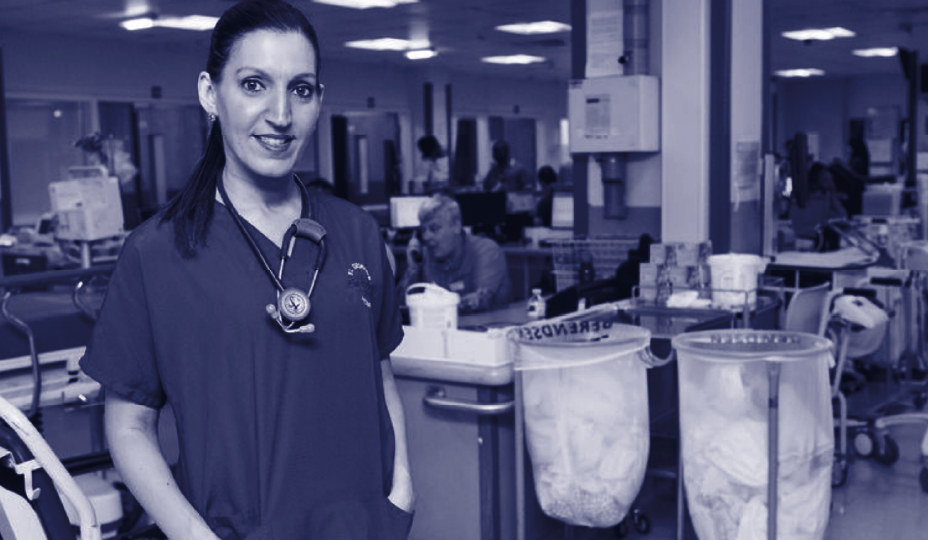

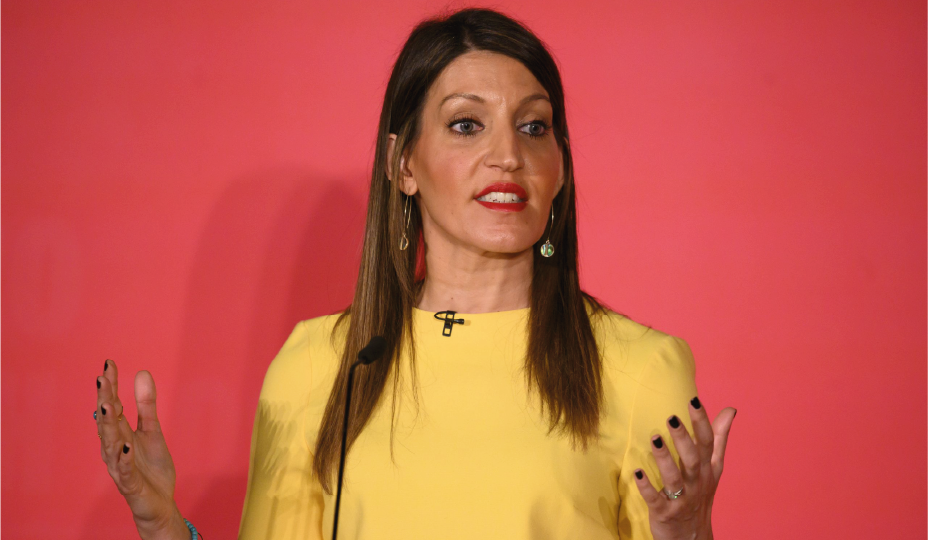
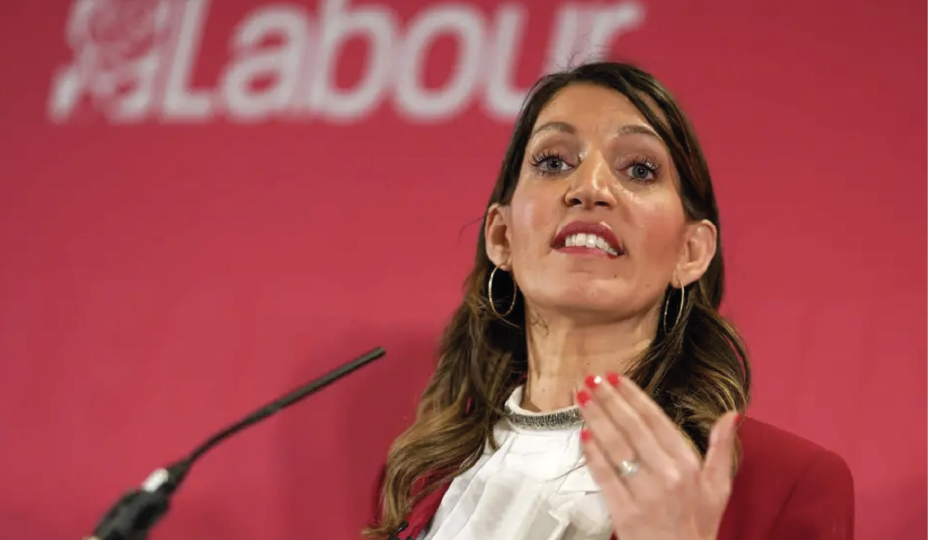
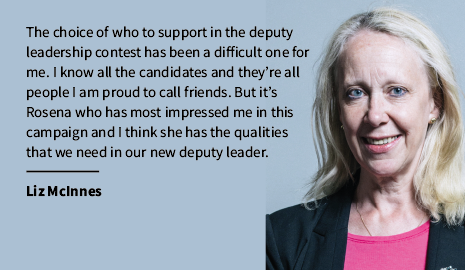
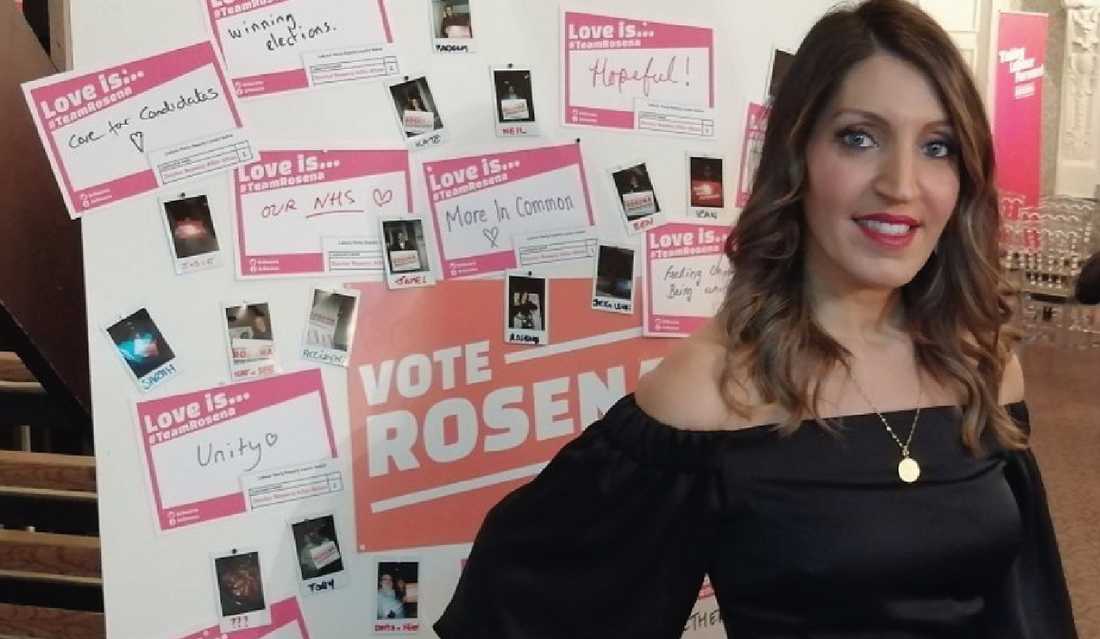
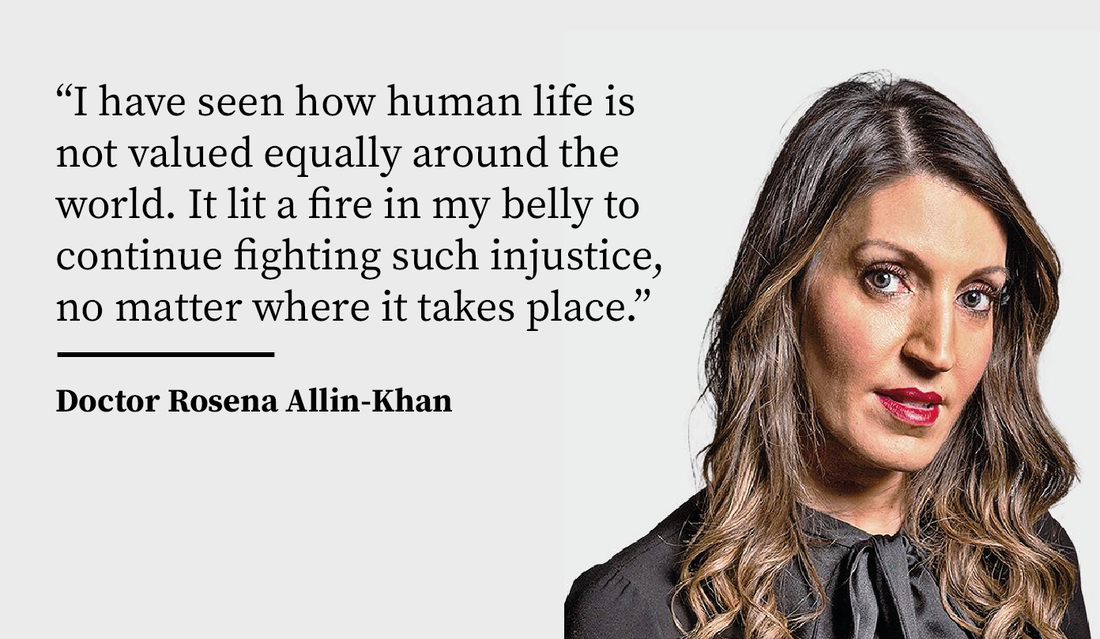
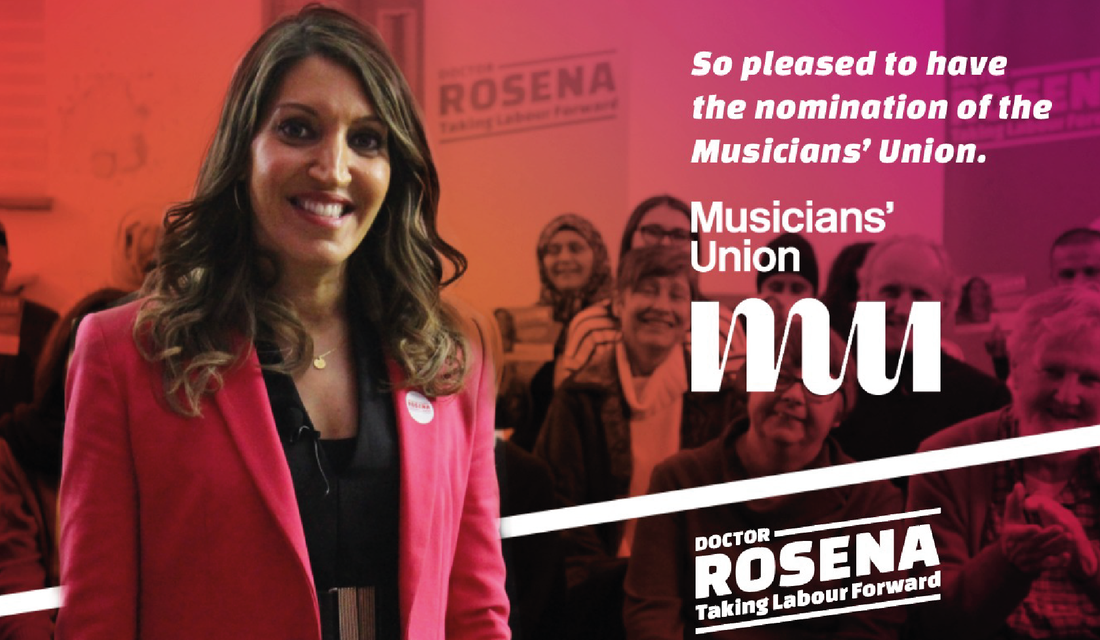
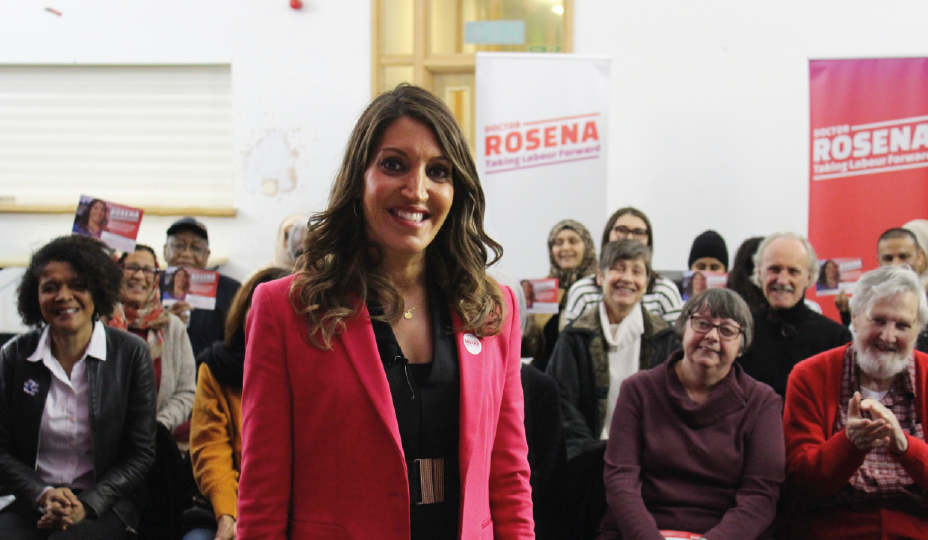
 RSS Feed
RSS Feed